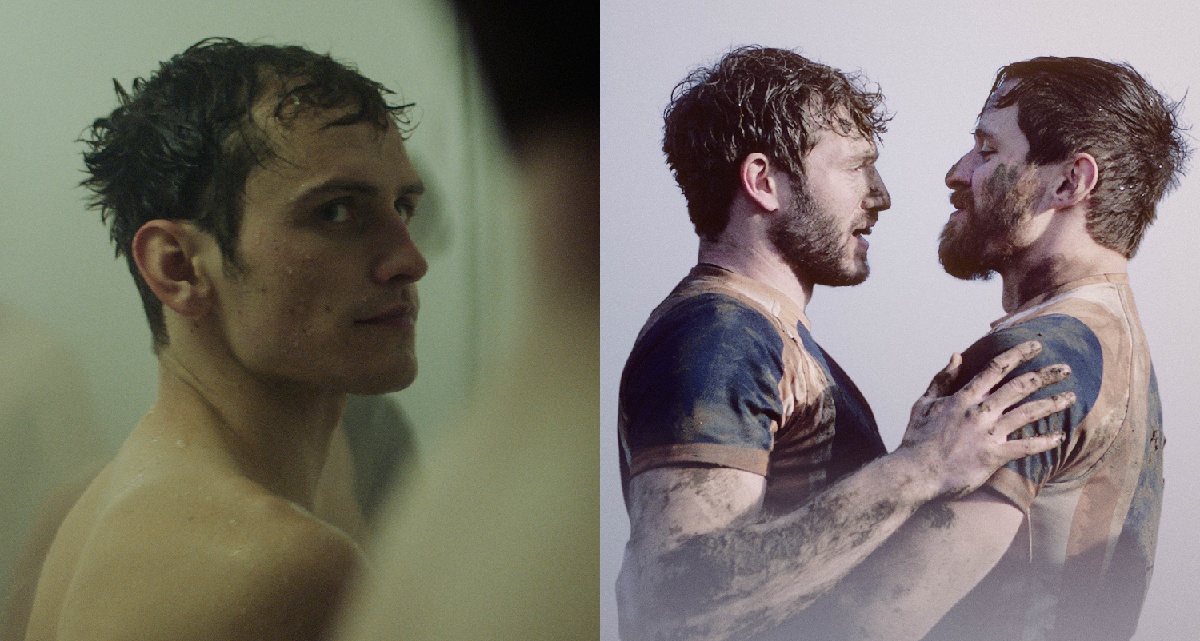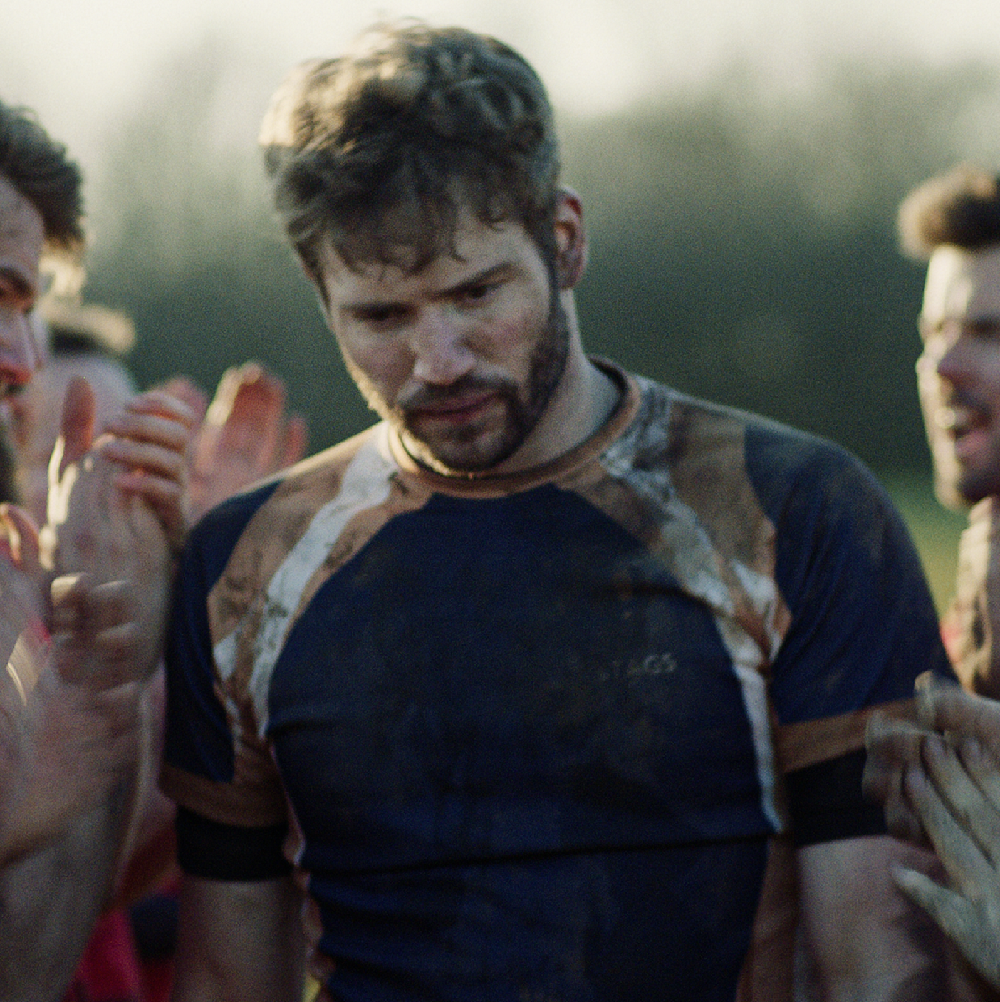In From the Side review: ‘Gay rugby drama is a scrum of sexual tension and toxic masculinity’
Screening as part of this year's BFI FLARE: London LGBTIQ+ Film Festival

Words: Jamie Tabberer; pictures: Provided
Disgustingly handsome, hypermasculine gay rugby players have problems too – and they involve sleeping together – is the big takeaway from unignorable sports drama In From the Side.
I don’t mean to sound ridiculing. It sounds like a soft porn treatment on paper, but there’s an authenticity to main character Mark’s story, and an exacting sombreness (if not outright humourlessness) throughout that saves IFTS from parody. In fact, this tale of destructive infidelity within a South London gay rugby team is so convincing, it left this viewer eager to know if it’s inspired by real events.
The sophistication of the film’s poster – I enjoy it, but have heard it described in less than glowing terms as “Star Wars/Marvel extended universe vibes” – says it all. This a film that takes itself very seriously, and plays to win.
In a sense, it does. The jewel in the crown of this month’s BFI Flare: London LGBTQIA+ Film Festival sold so well on the strength of marketing imagery alone (nothing to do with the gorgeous cast, surely?) that an extra screening was added.
Slick, expensive-looking cinematography follows suit. Shots of actual rugby-playing are genuinely astonishing, worthy of subscription channel advertising. Director Matt Carter lovingly captures the game in all its primordial glory; the physicality is unfeigned, and the elemental struggle intensified rather than clouded by rain, mud and darkness.

Off the pitch, things are more straightforward. The team are mostly comprised of brilliantly basic, XXL-frequenting swaggerers with egos bigger than their shoulders. The kind of preening people you’ll find on Scruff’s Most-Woof’d, who live in high-rise Vauxhall flats, holiday at their parents’ Swiss chalets and make you remove your shoes at house parties.
That’s not to say they’re straight-up d**kheads. There’s no missing the fact they really care about each other – indeed, it’s a somewhat laboured point – and are as real a chosen family/’tribe’ as any in the LGBTQ community. (Albeit a dysfunctional, heavy-drinking one.)

Heading up the scrum are morally bankrupt adulterers Warren and Mark, each played to dislikeable perfection by Alexander King and Alexander Lincoln. The former vibrates with sociopathic malignancy that begs to be explored further; instead, we’re ultimately invited to sympathise with – not even pity, but sympathise with! – a man aroused by deceit. It’s a clumsy misfire exacerbated by beautifully emotive music that doesn’t always align with the ugliness on screen.
Also oxygenating an underwritten story is Lincoln, whose performance is impressively textured: he bestows Mark with lashings of petulance but also hints of vulnerability. It’s not his fault, but Lincoln might gain more sympathy, and thus lend the film with more human depth, were Mark as a character better developed. As it stands, we don’t even know what he does for work, and he certainly has no discernible passions or interests outside of rugby and destroying other people’s relationships.

When boyfriends and secret admirers find out about the affair – as well as yet another random sociopath rugby player who can’t resist stirring the pot – the stage is set for an operatic showdown. Here, the film delivers, serving drama in spades. Of the many drawn into the mess, two performers stand out.
Pearse Egan is the team’s resident joker Pinky: all charisma and much-needed comic relief. Mary Lincoln also makes a crucial contribution as Mark’s wine-swilling, status-cherishing mother: one of the only, if not the only female character of substance. She and Mark’s Private Eye-reading dad offer wildly different takes on monogamy – the kind of intelligent analysis sorely lacking among the guys, who primarily think with their… well, you know.
Indeed, as much as I found the film engrossing and entertaining, I for one was relieved when my time with this lot was up, and remain unsure as to whether that was by design.
In From The Side is not a pleasant nor remotely romantic viewing experience. (Come to think of it, neither was Taron Egerton and Jonathan Bailey’s Cock.) And anyone who’s thought of joining a queer sports team in the interest of camaraderie, based on the assumption such environments are free of competitive toxic masculinity, not to mention the meat market vibes of other gay male spaces, might think twice having seen this.
Some might call such representation retrograde and outdated. I’d counter that it’s depressingly honest and even daring. Not every LGBTQ film, after all, has to pander to be ‘the film we need right now’. That said, there’s no escaping In From The Side‘s minimally diverse casting; another clunky element that rubs against the smoothness elsewhere. Case in point, a subtle alcoholism subplot that’s very finely judged.
Rating: 3/5
Attitude’s new-look March/April issue is out now.

